This article may contain affiliate links, and I will be compensated if you make a purchase after clicking on my links (at no additional cost to you)
When you look at a pit bull do you see a wide, goofy grin or a dog on the verge of attack? Either answer has its fair share of supporters.
There are many people that believe that the pit bull’s harrowed past is too great to overcome, while others believe that a pit bull will now and forever be a playful, loving sidekick. So, who’s right? Are pit bulls a naturally mean and aggressive breed?
Even though pit bulls have long been trained and breed for aggression and fighting purposes, they are naturally no more mean or aggressive than any other dog breed. Aggression stems from a mix of genetics, socialization, stress, training and interactions.
Where Did Pit Bulls Get Their Bad Rap?
Every dog breed was bred to perform a specific duty. Poodles were bred to retrieve birds, Saint Bernards were made to be Alpine search and rescue dogs, Yorkshire terriers were bred to hunt rats, and Shih Tzus were bred to be your lap warmer.
As you can see, many of these dog breeds haven’t entirely followed their job descriptions that they were meant to do (except Shih Tzus!). The same goes for the pit bull.
The breed of dogs that we refer to as pit bulls are descendants of the English bull-baiting dog.
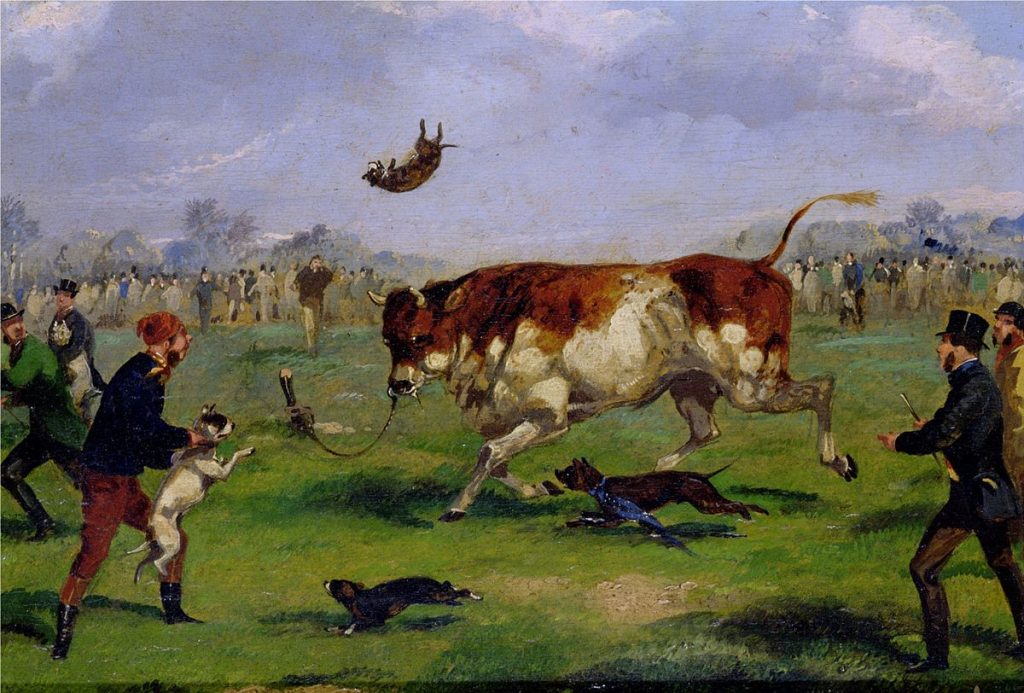
Baiting was a sport built purely for entertainment in early England in which dogs were paired against bulls, bears, or other large animals in a fight-to-the-finish.
Baiting dogs had to be tough, muscular, and tenacious as the object of the sport was to bite and hold the nose or face of the other animal in order to render them helpless.
The traits that made a good baiting dog are traits that most pit bull parents truly recognize in their pit bulls of today.
Once baiting was made illegal in the 1800s, the nature of the fighting turned to dog versus dog instead.
This switch led to adding quickness and agility into the mix of strength and tenacity. In order to be a good fighter, the dogs also had to be aggressive towards other dogs but not toward people as that would make them more difficult to handle.
While dog fighting has continued on since this time, it has had a resurgence in the news in 2007 when Atlanta Falcons quarterback Michael Vick was sentenced to prison for running a dog-fighting operation.
Couple that with thousands of stories of dog attacks on humans involving pit bulls and it’s no wonder that these dogs have developed a “Doesn’t Play Well With Others” reputation.
Breed Specific Laws
In an effort to decrease the number of attacks on humans and other animals, many states have instituted breed specific laws that ban or regulate the ownership of certain dog breeds that are considered dangerous.
With pit bulls being linked to dog fighting and attacks on humans you can imagine they always make the list.
This definitely doesn’t help build the reputation of a friendly, family dog that only wants human companionship that most pit bull parents are familiar with.
Instead, breed specific laws actually prevent many families from having a pit bull, no matter what the temperament, and therefore don’t allow for any other judgements of what a pit bull is really like.
The only information that some people have to make up an opinion on whether pit bulls are naturally more aggressive or mean is based on their history and these laws.
Non-pit bull people are also more likely to believe some of the myths surrounding this breed, further leading them to accept that these dogs are inherently more aggressive.
Pit Bull Myths
We’ve all heard them, whether you believe them or not may sway your impression of pit bulls as a breed.
- Pit bulls have locking jaws: No dog has jaws that actually lock. Pit bulls are anatomically the same as the friendly mutt down the street. Pit bulls, like other terriers, do have the built-in instinct to grab something and shake due to their hunting and fighting background. They also possess strong facial and jaw muscles which can make a bite harder to let go.
- Pit bulls are unpredictable: Pit bulls are no more likely than any other dog to wake up one morning and suddenly decide to start biting the hand that feeds them or the furry friend that they share a bed with. Dogs that suddenly ‘snap’ tend to have an underlying reason for doing so-such as pain, illness, or mistreatment.
- Pit bulls can’t interact with other dogs or animals: It’s true that some pit bulls are better as only dogs, this is also true of some chihuahuas, shepherds, and even Labs. If socialized properly and treated right, pit bulls can live as a friendly member of an animal menagerie. It’s important to remember that the purposes that pit bulls were bred for in their past may come back to haunt them, so always make introductions to new animals and people careful, controlled, and slow.
You can see how believing any of these myths may make you think that all pit bulls are out to get you and can’t be trusted. Because of these, pit bull parents may have a lot to socially overcome. In order to be accepted, pit bulls have to be nicer and better behaved than other breeds.
Where Does Aggression in Dogs Come From?
Aggression in dogs refers to a range of behaviors that usually start with some warnings that can then go as far as an attack. Aggressive dogs may become stiff or rigid, bark or growl, lunge or charge, bare their teeth, and snap, nip or bite.
Dogs are usually only aggressive in certain situations, such as during mealtime, if someone steals their toy, if they’re afraid or frustrated, or when around other dogs or people. Dogs may also be aggressive if they’re not feeling well or if they’re in pain.
Two factors influence a dog’s temperament: genetics and environment. Sure, there is some genetic link to behavior, that’s why dogs with certain personalities are bred over others.
But, most behavioral traits actually have low heritability, meaning that genetics do have some influence over them, just not very much. Environment takes over in shaping the rest of a dog’s temperament.
So, even though many pit bulls were historically bred to be successful fighters, possessing those aggressive genes doesn’t necessarily confirm an aggressive outcome.
Factors with the mother’s health during pregnancy can affect how a puppy behaves after it’s born. Was she stressed or starved? Even her body temperature can have some impact on her puppies temperament.
However, socialization and interactions after birth have the biggest impact on whether or not a dog will be aggressive. If a pit bull puppy from an “aggressive” mother is given the proper interactions with other dogs and humans and treated right, they will be far less likely to be mean and aggressive.
Environmental influence is also the reason there is so much variation in temperament between dogs as individuals and why they should be evaluated as such instead of as a breed.
So, What Are Pit Bulls Actually Like?
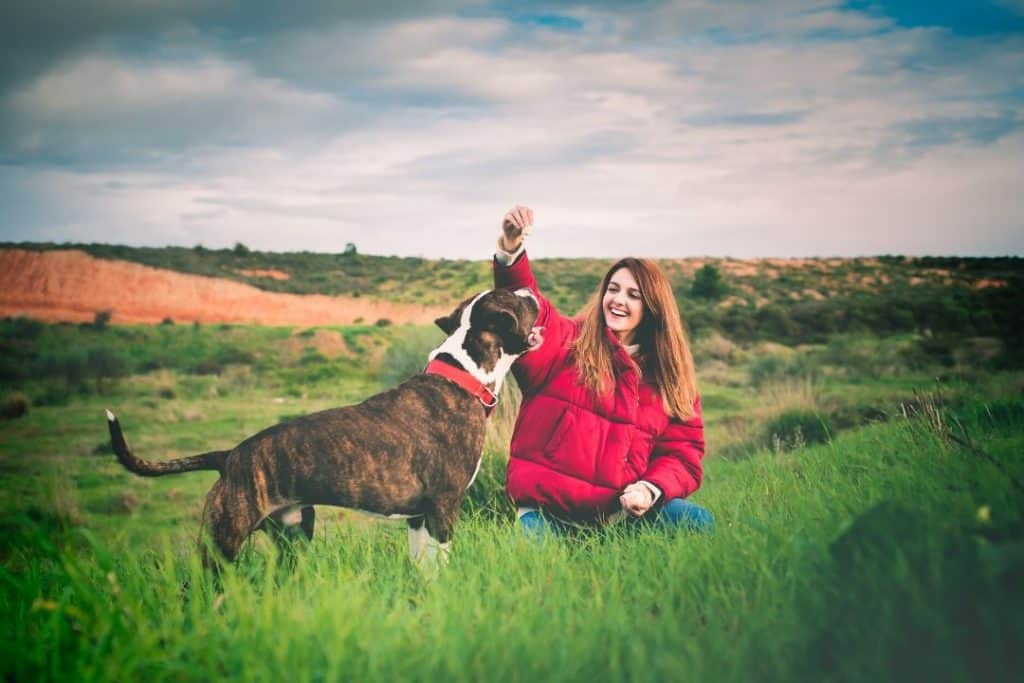
If you keep up with the news, you’ve more than likely seen your fair share of pit bull attacks, whether it be bites or fatal encounters. It’s true that it does happen, but it also happens with other dog breeds or mixes.
In fact, a study published in the Journal of the American Veterinary Medical Association looking at dog attacks over a 20 year period noted that data from this study “CANNOT be used to infer any breed-specific risk”, meaning that pit bulls were no more likely than any other breed to fatally attack a human.
If you look at the breed description provided by the United Kennel Club, they describe the pit bull as enthusiastic and eager to please. It also states that they make a great family pet, work well with children, are extremely friendly, and that aggression towards humans is uncharacteristic.
This is the pit bull personality that the vast majority of pet parents are familiar with, one of an unabashedly goofy, fun-loving, always wants to be around you kind of dog.
How Can You Help the Pit Bull Image?
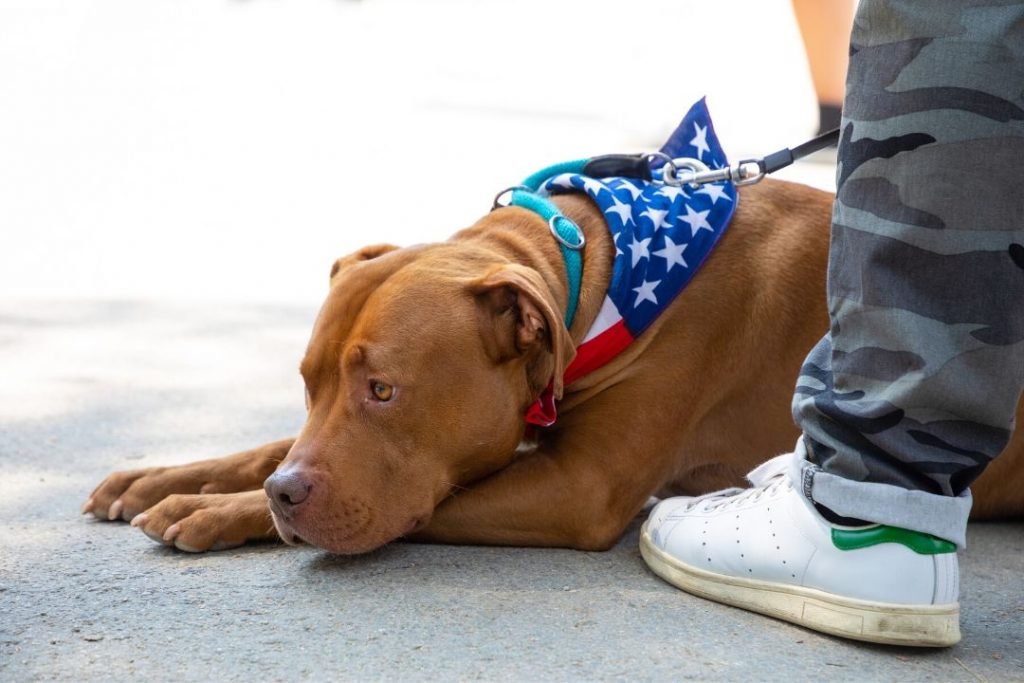
Even though there are a lot of pit bull proponents out there, there still remains some skeptics.
In order for pit bulls to overcome this “bad dog” persona, they are going to need a little help. It’s true that pit bulls may possess a higher than average display of dog aggression, but it doesn’t have to be that way.
Socialization and training, even in adult dogs, can help most of these canids overcome that bit of aggression.
Socialization works best if started early, but since that can’t always be the case, don’t cast it aside. Any steps that can be taken toward showing a dog proper behavior will help them in the long run.
Just make sure that these sessions are controlled and safe for everyone. Keep them short and frequent with lots of rewards and no punishments. Make every new introduction slowly, even if you completely trust your pit bull, so that there will be no surprises.
Pit bulls are also very active dogs.
They are a muscular, powerful breed that needs to use those muscles for something otherwise their energy may be turned towards aggression.
Be sure to give them lots of exercise, both physically and mentally. Any high energy dog can pick up bad behaviors if they’re not stimulated enough, just ask anyone who’s come home to find their Border Collie chewing holes in their couch.
Exercise is also a great way to bond with your pit bull, nothing says love like a game of fetch, or for them to socialize with other dogs. If you have to leave your dog for long periods, make sure they have activities to keep them entertained, like interactive toys, a lunchtime walk, or a playmate, so they’re less likely to turn their pent-up energy towards barking and growling at the mail person.
If you don’t intend to breed your pit bull, have them spayed or neutered.
Reproductive hormones can be to blame for some aggressive behaviors, such as male dominance or territorial aggression, and it can decrease their desire to roam.
Finally, look at all dogs as individuals. Don’t sum up a dog’s supposed temperament based on its breed. Again, there are wide variations in behavior and temperament even in puppies from the same litter due mostly to how they were raised. This is why breed specific laws may not be fair and may allow aggressive dogs of other breeds to live with a family but keep a friendly pit bull in a shelter.
Conclusion
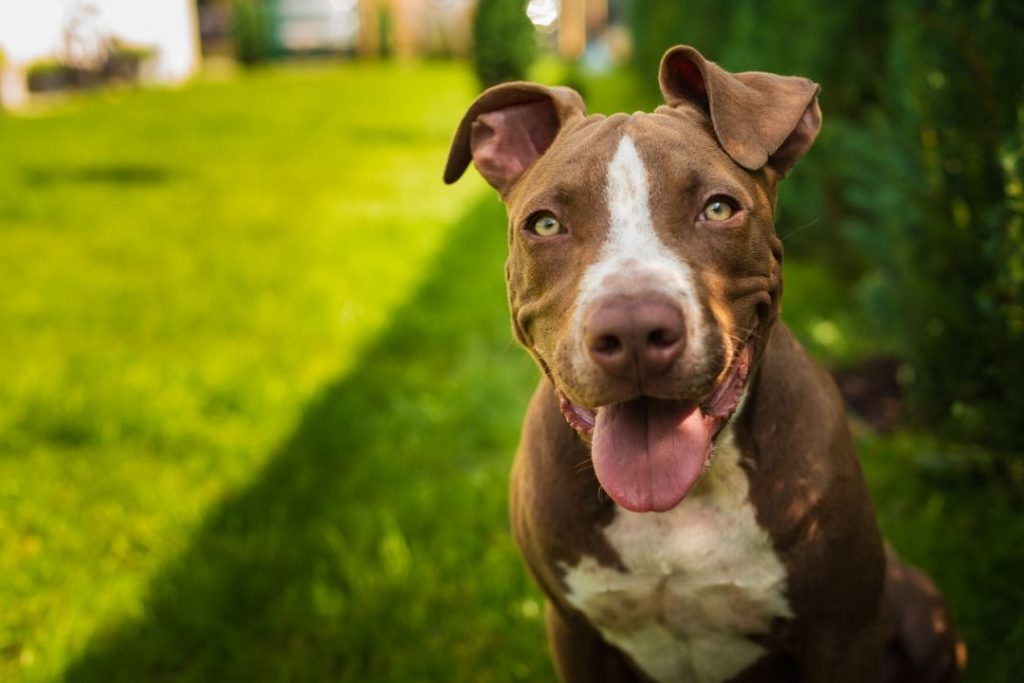
Pit bulls have a long history of being bred for aggression and fighting, there’s no escaping that. But rather than create a breed that’s also on the brink of an attack, the pit bull’s history has created a dog that’s powerful, energetic and ready to please their human companion.
Most pit bulls can make great family pets, with both humans and other animals. When treated right and trained properly they are no more likely to attack humans than any other dog.
Even their higher propensity for aggression towards other dogs can usually be overcome with proper socialization and handling.
Pit bulls should be seen as goofy and fun members of our canine society, not the viscous attackers that some would want you to believe they are.
As someone in the pit bull’s corner, it’s important to do your part and promote pit bulls for what more of us know they are-loyal and caring canine companions.

Dr. Chyrle Bonk has been a veterinarian since 2010. When she’s not practicing medicine or writing, she’s spending time with her family in the great outdoors of Idaho or tending to her menagerie of animals.

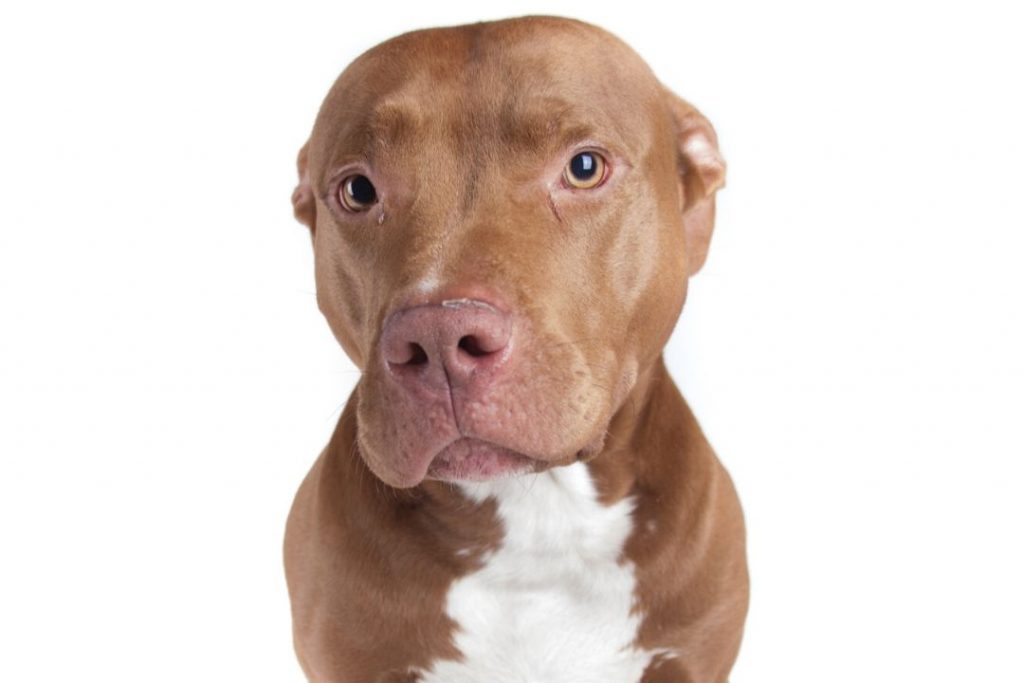
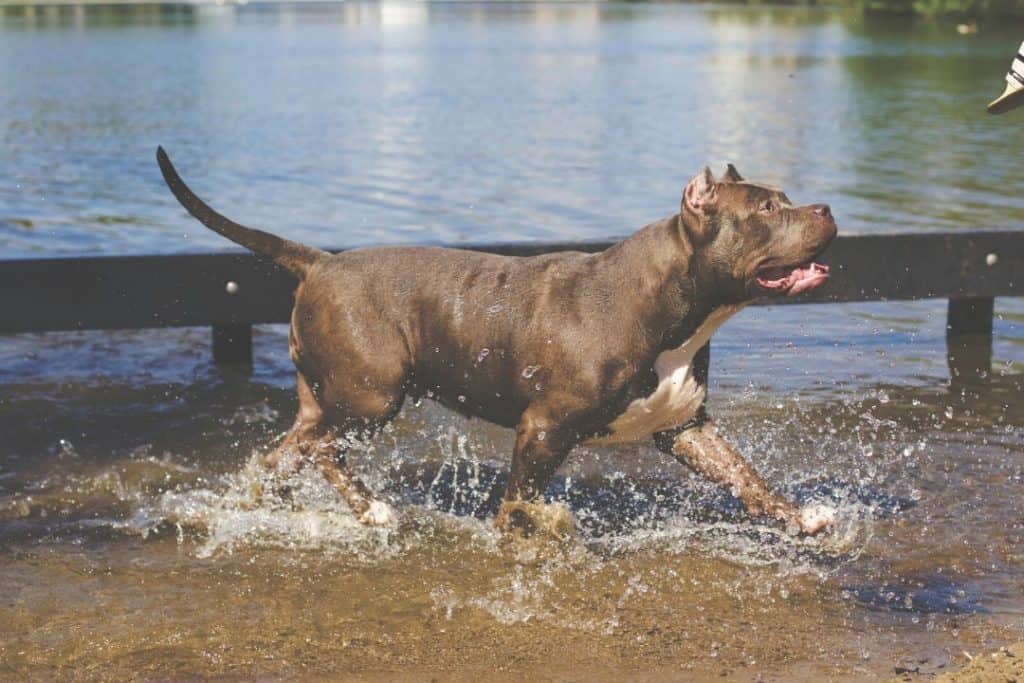
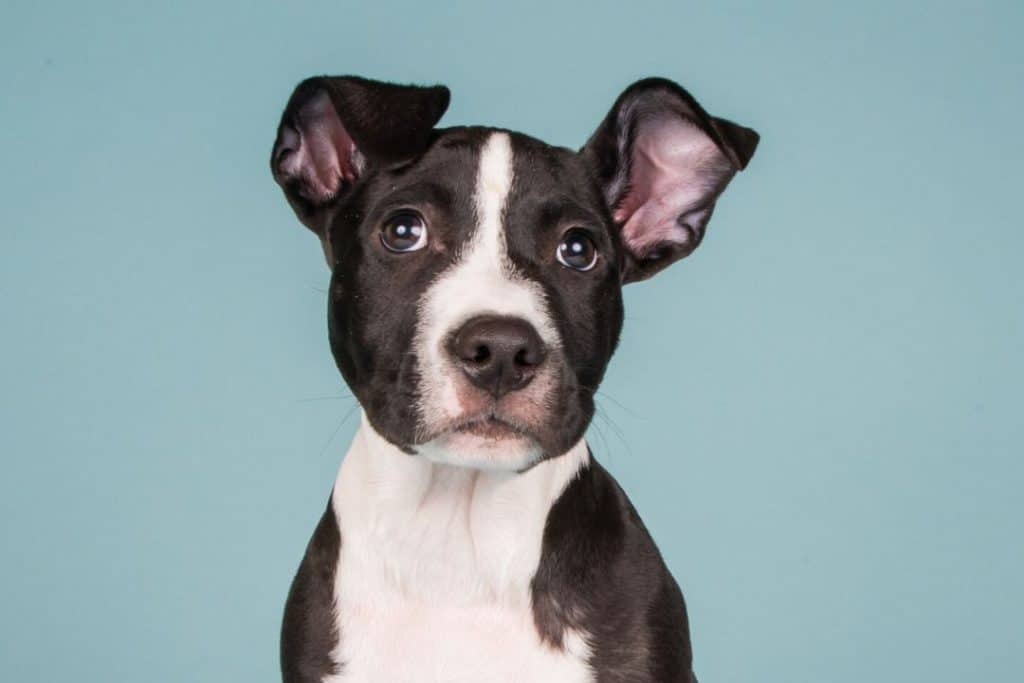
I rescued an American Pitbull Terrier almost 3 years ago and I know he was not in a very positive situation but with love, being firm but not mean, making sure he gets his exercises done everyday he has become the best dog I have ever had. Since than he has been put in the 2023 Cutest Pet Calendar and has qualified for others events including 50 mile dog walk event which will take place on the 8th of April.
So I used to be terrified of pits but not anymore his my registered ESA animal and my best friend. Thank you for your story maybe it will help show others !!